
Some landscape painters work on location, others from references back in the studio. I have done both over the years. Working en plein air in oils or watercolour, I would essentially paint or draw what was in front of me. I would then take these notes and sketches back to the studio and develop them into more “finished” pieces. For many years this has been my process when painting the landscape and I’ve had very little reason for it to change as it had served me well.
Recently, I learnt of an artist who had a very different approach to landscape painting. He began much as I did: working on location, sketchbook and camera in hand, before returning to the studio armed with numerous photos and sketches. The difference being that he would then put these reference materials away in a drawer and proceed to make a painting without looking at them. The studio painting process would rely instead on his memory and experience of the location.
The reasoning behind this approach was that his memory would, to a large part, inform what the painting would be about. It acted like a filter, sifting out all unnecessary elements and leaving only the strongest as a basis for the painting. This approach was very different to my own but one that lockdown gave me the perfect opportunity to try.
I was less stringent though. I decided to work from my memory of the location for as long as I could, at least until the plan for the painting was almost complete. Only then would I refer back to sketches – and only if I deemed it essential to the painting’s progression. Otherwise, I was more than happy to paint without them.
This story is from the June 2021 edition of Artists & Illustrators.
Start your 7-day Magzter GOLD free trial to access thousands of curated premium stories, and 9,000+ magazines and newspapers.
Already a subscriber ? Sign In
This story is from the June 2021 edition of Artists & Illustrators.
Start your 7-day Magzter GOLD free trial to access thousands of curated premium stories, and 9,000+ magazines and newspapers.
Already a subscriber? Sign In

Still life IN 3 HOURS
Former BP Portrait Award runner-up FELICIA FORTE guides you through a simple, structured approach to painting alla prima that tackles dark, average and light colours in turn
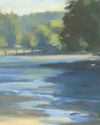
Movement in composition
Through an analysis of three masterworks, landscape painter and noted author MITCHELL ALBALA shows how you can animate landscape composition with movement
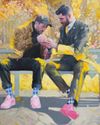
Shane Berkery
The Irish-Japanese artist talks to REBECCA BRADBURY about the innovative concepts and original colour combinations he brings to his figurative oil paintings from his Dublin garden studio
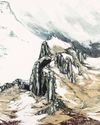
The Working Artist
Something old, something new... Our columnist LAURA BOSWELL has expert advice for balancing fresh ideas with completing half-finished work
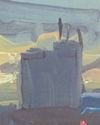
Washes AND GLAZES
Art Academy’s ROB PEPPER introduces an in-depth guide to incorporating various techniques into your next masterpiece. Artwork by STAN MILLER, CHRIS ROBINSON and MICHELE ILLING
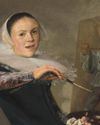
Hands
LAURA SMITH continues her new four-part series, which encourages you to draw elements of old master paintings, and this month’s focus is on capturing hands
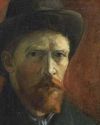
Vincent van Gogh
To celebrate The Courtauld’s forthcoming landmark display of the troubled Dutch master’s self-portraits, STEVE PILL looks at the stories behind 10 of the most dramatic works on display
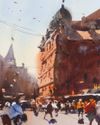
BRING THE drama
Join international watercolour maestro ALVARO CASTAGNET in London’s West End to paint a dramatic street scene
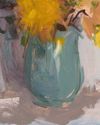
Serena Rowe
The Scottish painter tells STEVE PILL why time is precious, why emotional responses to colour are useful, and how she finds focus every day with the help of her studio wall
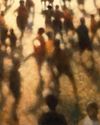
Bill Jacklin
Chatting over Zoom as he recovers from appendicitis, the Royal Academician tells STEVE PILL about classic scrapes in New York and his recent experiments with illustration